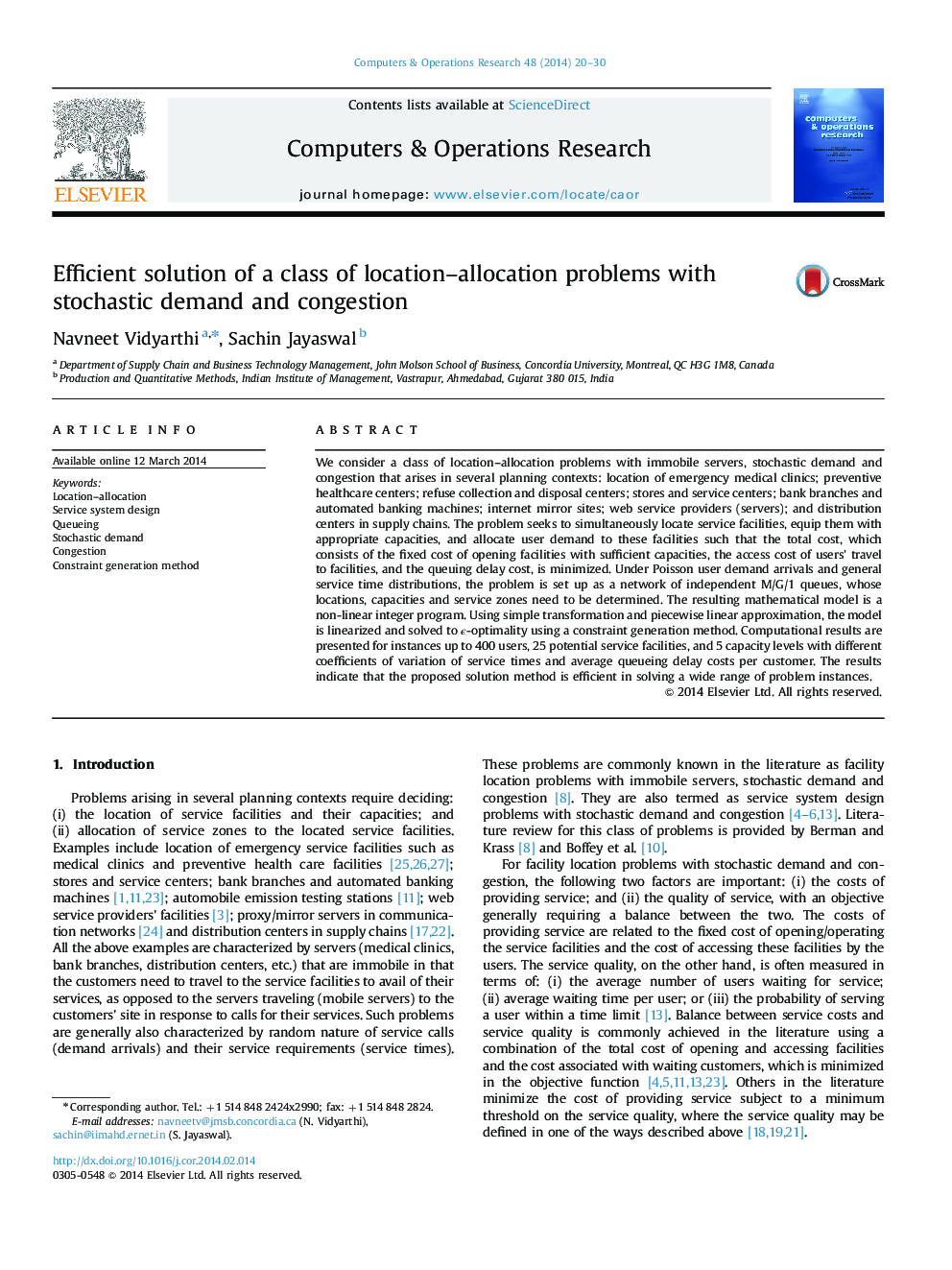| Article ID | Journal | Published Year | Pages | File Type |
|---|---|---|---|---|
| 475148 | Computers & Operations Research | 2014 | 11 Pages |
•We model the effects of congestion on location–allocation problems with queuing delays.•A nonlinear integer programming model and a linearization procedure are presented.•We present an ϵ-optimal solution approach based on constraint generation method.•Congestion effects facility location, capacity selection, and user allocation decisions.
We consider a class of location–allocation problems with immobile servers, stochastic demand and congestion that arises in several planning contexts: location of emergency medical clinics; preventive healthcare centers; refuse collection and disposal centers; stores and service centers; bank branches and automated banking machines; internet mirror sites; web service providers (servers); and distribution centers in supply chains. The problem seeks to simultaneously locate service facilities, equip them with appropriate capacities, and allocate user demand to these facilities such that the total cost, which consists of the fixed cost of opening facilities with sufficient capacities, the access cost of users׳ travel to facilities, and the queuing delay cost, is minimized. Under Poisson user demand arrivals and general service time distributions, the problem is set up as a network of independent M/G/1 queues, whose locations, capacities and service zones need to be determined. The resulting mathematical model is a non-linear integer program. Using simple transformation and piecewise linear approximation, the model is linearized and solved to ϵ-optimality using a constraint generation method. Computational results are presented for instances up to 400 users, 25 potential service facilities, and 5 capacity levels with different coefficients of variation of service times and average queueing delay costs per customer. The results indicate that the proposed solution method is efficient in solving a wide range of problem instances.
